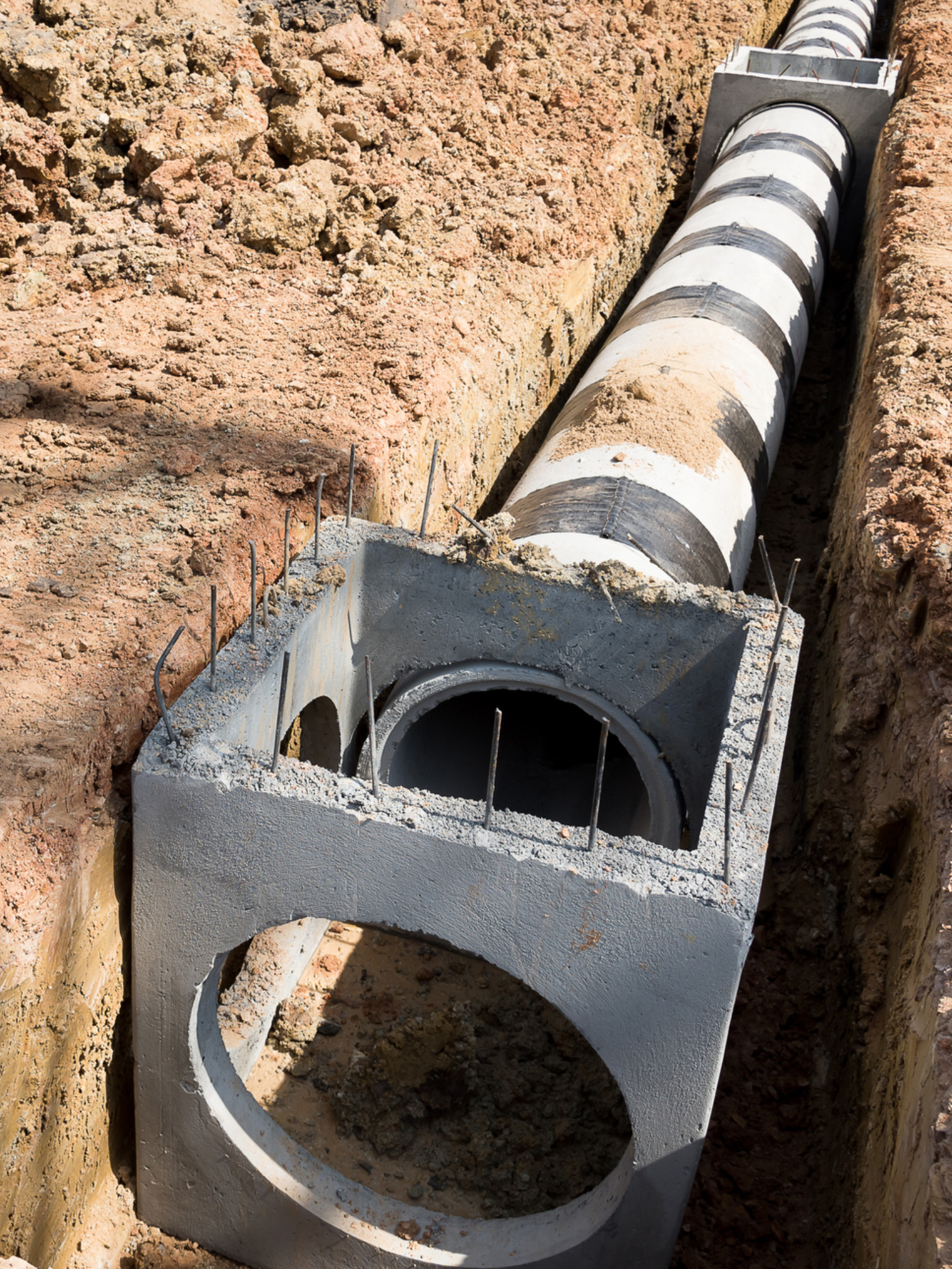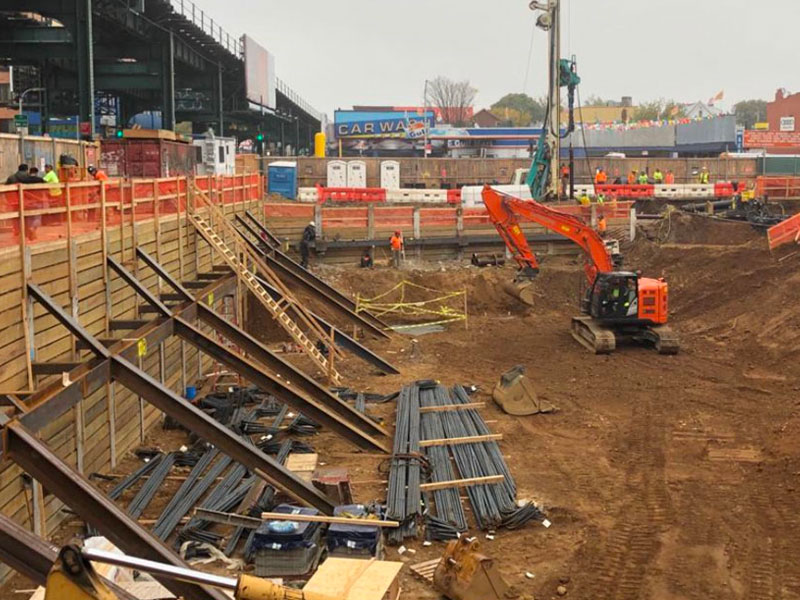Professional Septic Ohio - Trusted Septic Tank Professionals in Ohio
Professional Septic Ohio - Trusted Septic Tank Professionals in Ohio
Blog Article
Comprehensive Excavation Strategies: Understanding the Principles for Success
The mindful preparation, accurate implementation, and careful interest to information called for in excavation jobs require a detailed strategy that encompasses various fundamental facets. The true mastery lies not simply in recognizing these principles yet in seamlessly integrating them to navigate the complexities of excavation projects with skill.
Recognizing Excavation Project Planning

Successful excavation projects are improved the foundation of precise and thorough planning. The first phase of any kind of excavation job is the drawing board, where critical choices are made that can significantly affect the outcome of the job. Throughout this stage, it is necessary to gather all appropriate information concerning the site, including topographical surveys, soil structure, and any prospective risks that might exist. Comprehending the job timeline, scope, and budget constraints is vital for producing a thorough excavation strategy that guarantees the job's success.
One key aspect of excavation project preparation is the advancement of a comprehensive timeline that describes the series of target dates, tasks, and turning points. This timeline functions as a roadmap for the task team, enabling them to track progress and make necessary adjustments to ensure the task remains on routine. Additionally, a distinct spending plan that represents all expenses, consisting of devices rental, labor prices, and materials, is vital for staying clear of cost overruns and hold-ups. By very carefully thinking about all these factors throughout the drawing board, excavation jobs can be performed successfully and successfully, resulting in effective results.
Soil Evaluation and Website Assessment
Carrying out complete soil evaluation and website analysis is a critical action in the prep work phase of any kind of excavation project. Soil analysis entails determining the structure, framework, and residential properties of the dirt at the excavation website. This information is important for recognizing the dirt's bearing capacity, dampness web content, and potential for erosion, which are crucial variables in determining the excavation techniques and devices required for the task.
Site analysis goes beyond soil evaluation and encompasses a more comprehensive analysis of the overall website conditions. This examination consists of identifying any type of prospective threats, such as underground utilities, ecological worries, or unpredictable surface, that can influence the excavation procedure. By completely examining the site, job managers can establish reliable excavation approaches that focus on security, efficiency, and environmental security.
Making use of sophisticated innovations like ground-penetrating radar, soil sampling, and drone studies can boost the precision and effectiveness of soil evaluation and website examination. Investing time and resources in these initial actions can inevitably conserve time and protect against pricey delays or problems during the excavation procedure.
Devices Selection and Usage
Reliable excavation jobs depend heavily on strategic tools choice and utilization to make certain ideal performance and performance. Choosing the appropriate devices for the job is important in making best use of performance and reducing downtime. Factors such as the sort of soil, deepness of excavation, and job scope play a substantial function in determining one of the most suitable devices for the task handy.

In addition to selecting the suitable equipment, proper usage is crucial to job success. Operators needs to be educated to manage the devices safely and efficiently - excavating ohio. Routine maintenance checks and timely repairs help prevent breakdowns and ensure consistent efficiency throughout the task
Safety And Security Actions and Rules Conformity
In the realm of excavation projects, prioritizing safety measures and conformity with laws is extremely important to making certain a lawfully sound and safe operational environment. Precaution incorporate a variety of methods, including conducting thorough site analyses, carrying out appropriate signs and barriers, and giving appropriate safety training for all employees associated with the excavation process. Adherence to regulations, such as OSHA needs in the USA, guarantees that the excavation project fulfills the required standards to secure workers, bystanders, and the surrounding environment.

Monitoring Progress and Adjusting Strategies
Exactly how can predict supervisors efficiently track the innovation of excavation tasks and adapt their approaches accordingly to optimize outcomes? Tracking progress is important for making sure that excavation jobs stay on track and fulfill due dates. Task managers can use various tools and techniques to track progression, such as everyday report card, routine website examinations, and progressed monitoring modern technologies like drones and GPS tracking systems. By constantly keeping track of the project's improvement, managers can recognize any possible delays or problems early on and take positive measures to resolve them.

Final Thought
Finally, understanding the fundamentals of comprehensive excavation strategies is vital for the success of any type of task. By understanding task preparation, evaluating soil and site conditions, picking proper equipment, following safety laws, and checking progress, task managers can ensure a efficient and smooth excavation procedure. Executing these strategies will certainly cause effective outcomes and decrease potential dangers or problems throughout the excavation project.
The preliminary phase of try this web-site any type of excavation task is the planning phase, where crucial choices are made that can significantly affect the end result of the job. Recognizing the project budget plan, timeline, and extent constraints is vital for developing an extensive excavation strategy that makes certain the project's success.
How can forecast supervisors properly track the development of excavation jobs and wikipedia reference adjust their approaches accordingly to optimize outcomes? By carefully checking progress and being willing to adapt techniques, job managers can improve the general success of excavation jobs.
By recognizing task preparation, assessing dirt and website problems, selecting appropriate equipment, complying with safety and security laws, and monitoring development, task supervisors can make sure a smooth and effective excavation procedure.
Report this page